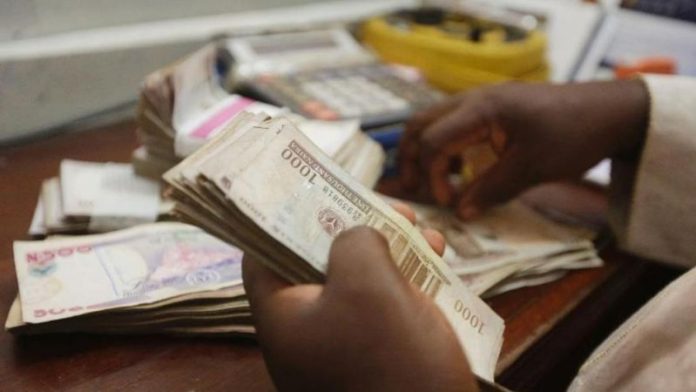The Nigerian naira experienced a historic low on the official window, trading at N1348.63/$ on the Nigerian Autonomous Foreign Exchange Market, marking a significant 51.21% drop from the N891.90/$ recorded at the close of the official market last Friday. This new exchange rate represents the worst official rate since the Central Bank of Nigeria adopted a floating exchange rate for the national currency in June 2023.
The naira has persistently depreciated against the dollar, breaching the N1000/$ mark on the official window. Notably, it first fell to an all-time low of N1,099.05/$ on December 8, 2023, and continued its downward trend, closing at N1043.09/$ on December 28, N1035.12/$ on January 3, 2024, N1089.51/$ on January 9, and N1082.32/$ on January 10, 2024.
Efforts by the Central Bank of Nigeria and the Federal Government to bolster liquidity in the foreign exchange market have proven insufficient in preventing the naira’s steep depreciation. Even on the parallel window of the foreign exchange market, the naira has faltered, trading at N1,450/$ at the close of trading on Monday, compared to N1,420/$ on the preceding Friday.
Bureau de Change operators confirmed the decline, with the naira quoted at N1,450/$, reflecting the ongoing challenges faced by the national currency. Additionally, in the cryptocurrency peer-to-peer market, the naira traded at N1,429/$ on Binance’s P2P platform, indicating the broader impact of the exchange rate instability.
Despite recent payments by the Central Bank of Nigeria to clear forex backlogs, the naira’s downward spiral continues. The apex bank paid $500 million on Monday, following a recent $2 billion payment for the same purpose. The total FX backlog owed by the CBN is rumored to be around $7 billion.
CBN’s spokesperson, Mrs. Hakama Sidi Ali, emphasized the commitment of the central bank to resolve legitimate forex backlogs promptly. She assured Nigerians that the CBN is implementing a comprehensive strategy to enhance cash flow in the Nigerian foreign exchange markets across short, medium, and long-term perspectives.
The ongoing depreciation of the naira is anticipated to have adverse effects on the prices of goods and services in the country. Manufacturers have already indicated that they may increase commodity prices in response to the fluctuations in the exchange rate.













